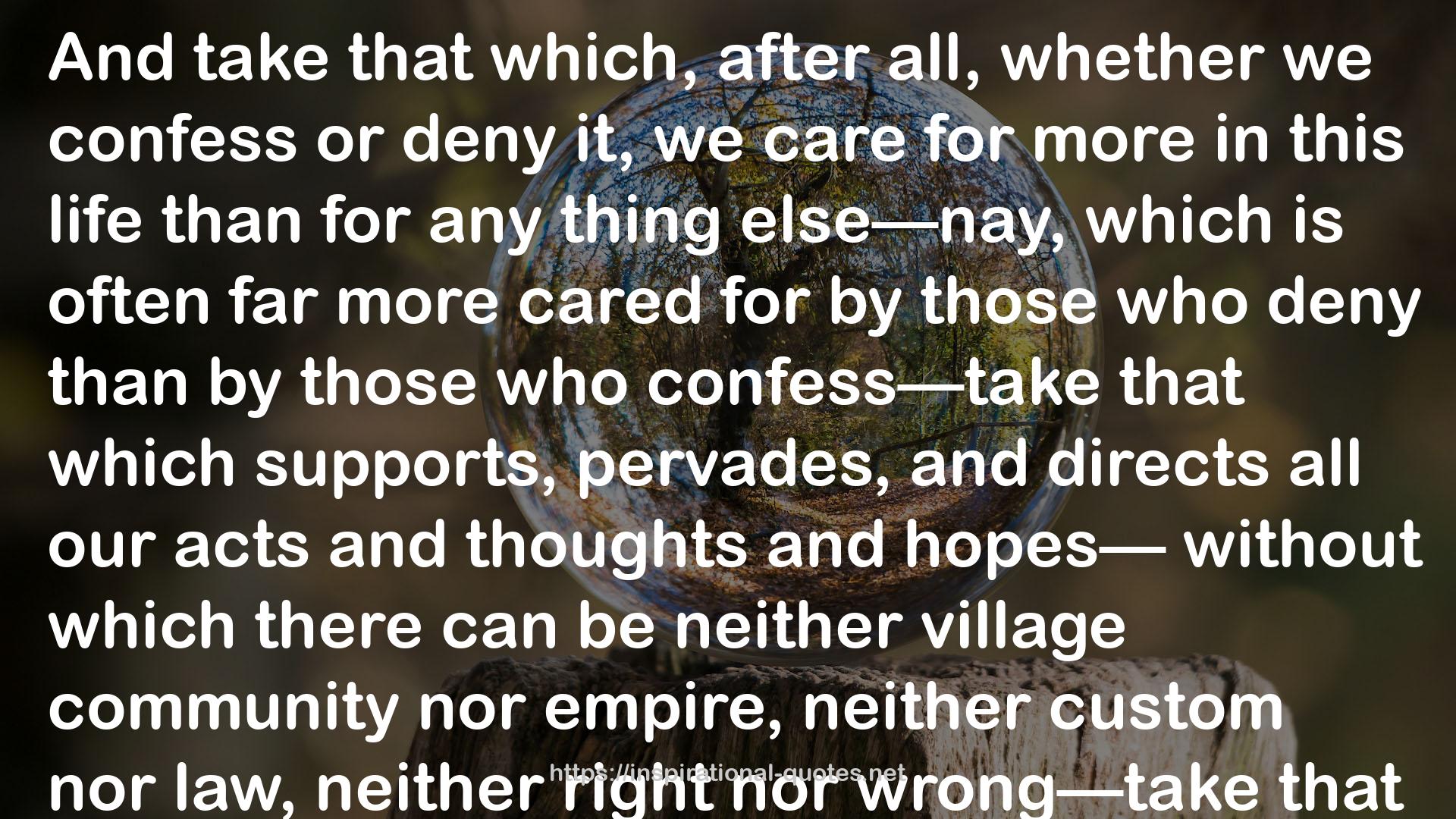" And take that which, after all, whether we confess or deny it, we care for more in this life than for any thing else—nay, which is often far more cared for by those who deny than by those who confess—take that which supports, pervades, and directs all our acts and thoughts and hopes— without which there can be neither village community nor empire, neither custom
nor law, neither right nor wrong—take that which, next to language, has most firmly fixed the specific and permanent barrier between man and beast— which alone has made life possible and bearable, and which, as it is the deepest, though often hidden spring of individual life, is also the foundation of all national life,—the history of all histories, and yet the mystery of all mysteries—take religion, and where can you study its true origin, its natural growth, and its inevitable decay better than in -India, the home of Brahmanism, the birthplace of Buddhism, and the refuge of Zoroastrianism, even now the mother of new superstitions—and why not, in the future, the regenerate child of the purest faith, if only purified from the dust of nineteen centuries? "
― F. Max Müller
Image for Quotes

